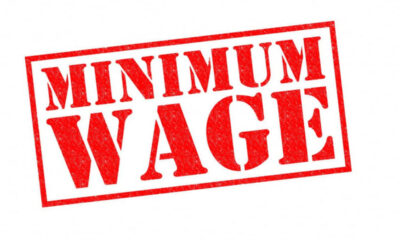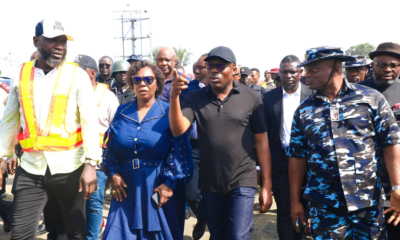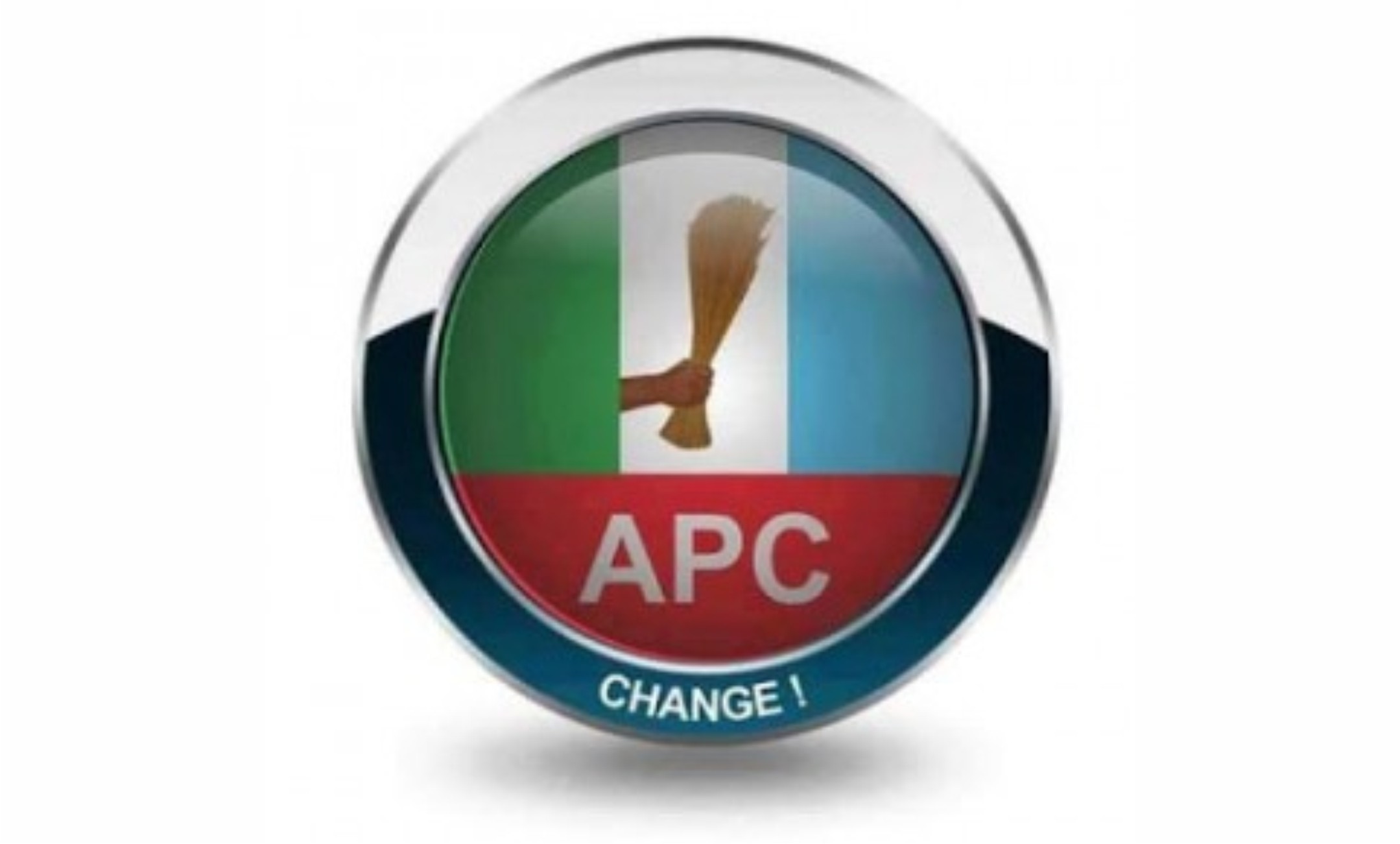Opinion
Reminiscences Of A Pen Maestro
There are many sorrows, but there is nothing that rends the heart as the death of a beloved one. So as I begin to write, in the past tense, about my great and dependable friend, brother, and, indeed, counsellor, the late Mr Minere Amakiri, I have a profound feeling of sombreness and nostalgia.
I did not just read about this jewel of inestimable value, this man of golden heart, this crusader of peace, truth, and justice, this disciplinarian, this wonderful and great man, this pen maestro that traversed the journalism world like a colossus, I ate with him and shared invaluable moments with him in our homes and offices, and at events.
Several times we discussed far into the night touching on diverse issues – religion, politics, and socio – economic life across the world. But most times, we zeroed our discussion on the developmental challenges of Rivers State and the Nigerian state. We dissected the public and private sectors and the entire structure of the country’s economy.
The late Mr Amakiri had a deep sense of history. Sometimes he would take me through the tortuous journey of the Nigerian nation, highlighting the trouble with the country. He was very critical about the issues – the issues that have kept the country spinning like the barbers chair. He would lampoon the politicians who have become obsessed with the acquisition of power and wealth to the detriment of the nation. He would explain how these people squandered public wealth on frivolous pleasures without any feeling about the plight of the common man.
The late Mr Amakiri believed that with effective and efficient husbandry of the country’s abundant natural and human resources, Nigeria will catch-up with the developed countries in no distant time. He would say: “Look at the poor state of the various sectors of the economy: agriculture, electric power, transport, manufacturing distribution, health, and water – the wealth of the nation being drained away by corruption and wasteful spending can very well fix it”.
As far as the late Mr Amakiri was concerned, Nigeria has hardly had disciplined, committed, and courageous leaders. To him, the Nigerian is a person of resilient and indomitable spirit who derives tremendous joy from living and the pursuit of survival. Thus in the face of inadequate provision of social amenities by government, the Nigerian provides such necessities of life as electric power, water, and security for himself, meaning that with selfless, potent, and effective leadership, he can be turned into a veritable vehicle for national growth and development.
To say the least, I admired his intellectual prowess, his courage, his logic, and most of all, his great love for Rivers State, the Nigerian nation, and humanity. His mind was as sharp as a razor blade. He could tear any political, economic, and social issue into pieces. His attack on any matter affecting public interest was acidic. Mr Amakiri’s pen could scoop out real sweat from any government or person whose action was anti-thetical to the yearnings, aspirations, and the general well being of the people.
This was, perhaps, how his story published in the Daily Observer of the then Mid-West of Nigeria Government incurred for him the wrath of the Rivers State Government of the then Commander Alfred Diete Spiff in 1973. The hair on his head was shaved off. He was flogged. And he was detained for publishing the story which the then Rivers State Government perceived as embarrassing to the Governor, his family, his executive council, and security operatives. That encounter with the Rivers State Government, popularly known as What Did Amakiri Do opened a new vista for the fight for press freedom in Nigeria and beyond. And the then Justice Ambrose Allagoa’s Judgment on the case has become an important citation on press freedom across the world.
After his long fulfilling but challenging practice of journalism with Drum Magazine, a South African magazine, Lagos Weekend, a weekly newspaper of the Daily Times Stable, the Overseas Press Services (OPS) as a war correspondent, and the Daily Observer, and making contact with such world-renowned journalists and author as Fredrick Forsythe, Mr Oronkwe, the then Reuters Chief Correspondent in Owerri and others like Mr Nelson Otah, Mr Boniface Ofokaja, and Chief Victor Effiong, a former General Manager in NTA, Mr Amakiri founded the Beacon newspaper in 2001.
Today, the Beacon is known to be a crusader for good governance, transparent leadership, and a voice for the voiceless. Apparently, the Beacon has become the crowning glory of his long chequered journalism career which he began in 1967.
But Mr Amakiri was not the proverbial traveller who became a stranger in his own land. He was a typical Rivers man, who would walk with a swagger in his gait. He proudly wore his woko and etibo and always stood out in the crowd. He was self-assured and a little self assertive. He knew his rights and would not allow anyone, no matter his or her station in life, to trample on them.
I called him Beacon, Oga Beacon, Sir Beacon. Why? Not only because he was the founder and publisher of the Beacon newspaper but also because he was, strictly speaking, a beacon of hope for many. A hardworking, humorous, vibrant, and versatile man, he was a giver and a lover of life. I cannot remember any day or time I visited him that he did not offer me some food, drinks and gifts of different sizes, shapes, and colours. Mr Amakiri was a great man.
As we moved him to the morgue that fateful Friday August 19, 2011, it downed on me that death comes when it must come.
It must come one day unbidden and unwelcome, no matter how we try to stave it off. Death arrives whether or not we are ready for it, whether or not it is a mystery to us. It comes nonetheless with no regard for wisdom, understanding, goodness, age, and station in life. Whether it brings grief, sorrow or tears to the loved ones, it comes.
But death is only a bridge to the far country. It is a coma in the whole sentence of life, in the continuum of existence. And, as the spiritual leader of Eckankar, Sri Harold Klemp puts it: “Life and death have no real boundaries. Death is but a gateway”. This means that upon his physical death in this world, Mr Amakiri has moved to the far country, the great beyond.
Though Mr Amakiri has ascended to the far country, he will continue to live in my heart and the hearts of others who loved him.
Opinion
Other Sides In Junior Pope’s Death

The tragic boat mishap of Wednesday, April 10, 2024, which claimed the lives of popular Nollywood actor, Mr John Paul Obumneme Odonwodo, popularly known as Junior Pope, and four others, has sent shock-waves across the Nigerian movie industry, and set the social media buzzing with reactions.
A contingent of 12 movie crew members had set out for a boat journey from the River Niger Cable point, a waterside jetty at Asaba in Delta State, to cross to the other side of River Niger, into Anam, a riverine community in Anambra State, for the shooting of a movie set titled ‘Another side of Life’ produced by Adanma Luke. Unfortunately, a series of avoidable events culminated the journey into an ill-fated expedition that sent fives lives to ‘the other side of life.’ The incident made the movie’s eventual ban a nullity, having played-out its symbolic meanings in real life while in the making, rather than on envisaged screens.
An avoidable incident, it exposed our society’s casual attitudes towards marine and general safety, as well as our endemic superstitions, while telling, on several flaps, other side tales of reality in the accounts of what transpired during the production, or rather, play of Adanma’s ‘Another side of Life.’
While veteran actor and Senior Adviser on Military Relations to the President of Actors’ Guild of Nigeria, Mr Steve Eboh, claimed he missed joining the ill-fated boat because he arrived too early before the crew, and had to go back, the producer, Adanma Luke, claimed she missed it because she came too late.
A journey’s jolly take-off from Asaba, Delta state, which ended tragically in its return from the other side in Anambra State, proved to be a rascally journey that showed the other side of rascality, even as T. C. Okoye claimed that pre-performing of obeisance to some marine spirits saved his life. But it was T. C. Okoye who had to hang unto a boat’s anchor in the face of death, rather than rely on the powers of the spirits he had appeased with Fanta, to await rescue from mortal men – sensible men, whose advise that one needs wear life jack during marine journeys – he had forsook, yet gave glory to his rituals after rescue.
Conversely, one may flip the flap to consider the other side of T. C. Okoye’s rituals to ruminate on other possibilities. Could the ringing of bells, spraying of money and snacks, and pouring of Fanta, have evoked the anger of the ‘marine spirits’ as rumoured, or distracted the boat driver, to the point of accident? And as reported by The Punch, what’s the significance of T. C. Okoye ‘dashing’ ritual money to innocent children whom circumstance made to be by the riverside?
Also, the argument by Mr Steve Eboh, that “If the star actors in that boat had wanted to wear life jackets, they would have been given the jackets” holds no ground, because the guild, as well as all the marine transport stakeholders, should have enforced strict safety compliance by all voyagers. It is therefore commendable that the Anambra State Commissioner of Police, Aderemi Adeoye, has ordered exhaustive investigations into the matter to determine criminal liability of all persons involved.
However, in the melee of pandemonium that accompanied rescue efforts, Nollywood celebrities, our society’s supposed role models, prioritized superstitious rescusitation over sure medical practice, rushing victims between spiritualists and hospitals, until a ‘pope’ whose work and journey had bound with the superstitious, died amidst superstition. Indeed, it’s during crises, when people care less about ‘packaging,’ that truth and the real personality of humans stand bare and naked.
While medical personnel who got their chance late had certified Jnr Pope dead, our star-persons held unto their spiritual advisers who claimed his spirit coming back to life, up until reality finally dawned that pope’s spirit has permanently crossed to the other side of life.
Regrettably, the reality has not fully dawned, otherwise three corpses shouldn’t have been buried by the riverside as dictated by spiritualists, and Jnr Pope’s family shouldn’t be worried about what would happen, as rumoured threatened of his three children, if his corpse is not buried by the riverside. However, it appears that having encountered the influence of a frontline celebrity, the spirits have turned capricious by bending divinely demands to accepting two cows, as rumoured, in exchange for Jnr Pope’s corpse being buried elsewhere.
According to the Anambra State Police Public Relations Officer, SP Tochukwu Ikenga, a team of rescuers comprising men of the Anambra State Marine Police Command, the National Inland Waterways Authority (NIWA) and the Maritime Workers Union of Nigeria, with the aid of fisher men, rescued seven persons alive to the Anambra side, while two retrieved corpses were sent across the other side, to the Delta State Marine Police Command jetty where Nollywood officials stood waiting. Of other three victims, two corpses were rescued next day, while a third was thrown out by river tides, all of whom; Abigail Fredrick (Vice Chairman of Costumer Designers Guild of Nigeria, and Akwa-Ibom State-born make-up artist), Precious Oforum (Sound engineer) and Joseph Anointing (Gaffer), have since been buried by the riverside, according to local belief.
However, what the police PRO’s statement didn’t reveal is if Jnr Pope’s corpse was sent to the other side in Delta after all the back and forth between spiritualists and medical personnel within Anambra, or if it was sent straight upon rescue to Delta state, but mysteriously found its way back to Anam, on the Anambra side.
It’s unfortunate that Nollywood which set out in its early days to expose superstitious beliefs and practices in our societies, in the hopes of enlightening the minds of the masses, and to curb the manace, has made many believe it’s rather reinforcing superstition in the ways it condicts the movie industry business.
Members of the showbiz in general, now appear to be key protagonists of superstition to the point that, being perceived as role models, so many youths have been drawn to lives of unrealistic dreams and materialism, which often get pursued through ritualism, with its attendant crimes.
Joseph Nwankwo
Opinion
The Value Of Books And Reading
The quality, quantity and diversity of books produced by a society are important indicators of that society’s level of development. . . .”–Valdehusa (1985).
April 23 of every year is marked around the world as ‘World Book and Copyright Day.’ Also known as ‘International Day of The Book,’ it is a Day set aside by the United Nations Educational, Scientific and Cultural Organisation (UNESCO), to promote reading, publishing and copyright. The Day aims to change lives through a love of books and shared reading. The theme for the 2024 ‘World Book Day’ is: “Read Your Way.” This year’s theme calls on everyone to let go of pressure and expectations, giving children a choice – and a chance to enjoy reading.
According to Audrey Azoulay, Director-General of UNESCO: “Books have the unique ability to entertain and to teach. They are at once a means of exploring realms beyond our personal experience through exposure to different authors, universes and cultures, and a means of accessing the deepest recesses of our inner selves.” Therefore, the power of books should be leveraged to combat isolation, reinforce ties between people, and expand our horizons, while stimulating our minds and creativity. It is critical to take the time to read on our own, or with our children.
Did you know that The Bible stands out as the most widely translated and distributed book worldwide? Yes, the Bible is by far the most widely translated and distributed book! Its wisdom has reached and helped more people than any other book or publication. 96.5 percent of the world’s population has access to the Bible. The Bible is available (in whole or in part) in over 3,300 languages, and the estimated number of copies of the Bible produced is 5billion, far more than any other book in history. Which other book(s) do you enjoy or have you enjoyed reading? As for me, one book I am currently enjoying reading is a 400 – 500 page healthcare handbook titled, Where there is no doctor, authored by David Werner. It is a very valuable healthcare handbook that I have found to be very very beneficial! In fact, this healthcare handbook has been fondly described by some as “the ‘Bible’ of health education,” and I strongly recommend that every family should have a copy of this book at home. Apart from this book, I also enjoy reading for pleasure children’s books, such as those I have found on booksmart.worldreader.org and www.africanstorybook.org. What about you? What books have you enjoyed or do you enjoy reading? Do you know about the book industry? There are three major sectors of the book industry. They are: publishers, booksellers and libraries.
Book publishing is channelled towards promoting learning and expanding knowledge. In a strict sense, book publishing starts from the point of conceptualisation of the ideas for the book by the author, and ends at the very last stage – the end-user (the reader). The history of book publishing in Nigeria can be traced to the establishment of the very first publishing press in Calabar, in 1846, by Rev. Hope Waddel of the Presbyterian Church of Scotland Mission. The press was used to print Bible lessons and later arithmetic books for schools.
In 1854, another Missionary based in Abeokuta, Rev. Henry Townsend of the Church Missionary Society (CMS), established a Press. Five years later (1859), he used it to print the very first newspaper in Nigeria – ‘Iwe Irohin.’ Thereafter, notable Nigerians like Herbert Macaulay established the first indigenous newspaper in 1926, called Lagos Daily News. Also, in the same year, Daily Times made its debut. In 1949, Oxford University Press (OUP) floated a sales outlet in Nigeria. This action attracted many foreign-based publishing firms to Nigeria, such as Macmillan, Longman and others. The first published book in Nigeria by OUP was released in 1963, when its local branch published ‘Ijala Ere Ode’, a Yoruba poetry genre by Oladiipo Yemitan. Aside from the foreign companies, many other home-based publishing houses were architected by indigenous entrepreneurs. The book publishing industry in Nigeria has continued to enjoy drastic growth ever since.
However, in the last few decades, the Nigerian indigenous book publishing industry has experienced a downturn due to numerous challenges facing the industry, including: book piracy, proliferation of unqualified author -.publishers, lack of capital, and inability to provide adequate numbers of high-quality books.
Other challenges include: poor reading culture, infrastructural decay, dearth of expertise, incessant rancour among the major stakeholders, and so forth.
Therefore, here are some suggestions for developing our book publishing industry in Nigeria: Stakeholders such as government, publishers, authors, regulators, booksellers, libraries, and readers should cooperate among themselves and contribute their quota immensely towards the development of a virile book publishing industry. Private investors such as banks, finance houses and influential individuals should participate, especially in terms of massive capital injection.
Ighakpe writes in from FESTAC Town, Lagos.
Daniel Ighakpe
Opinion
Let The Poor Breathe
In the history of our nation, only petroleum products have suffered more incessant increments in prices than electricity supply in all public products and services. Unfortunately, those are the two main things that impact mostly on our lives and national economy. While the increment in petroleum products’ prices is always attributed to the price of crude oil at the international market and the need to curb the scarcity by encouraging the supply, the increment in the electricity tariff has never had any justifiable reason and no service improvement afterwards. In fact, the electricity supply has gone far worse now that the tariff has gone up by over 300 percent. One of the underlying reasons for the planned electricity subsidy removal as unconsciously relayed by the Minister of Power on TVC News is the sabotage of the system by those collecting the subsidy money to maintain the assets. He said: “These are assets that we spend the country’s money on, and our brothers deliberately sabotage them. So, you can see that some people are hiding somewhere that do not want this sector to work”.
Just as the petroleum subsidy must go because the government is too impotent to handle the petroleum subsidy racketeers, the electricity subsidy has to also go at the expense of the poor masses and no one has been prosecuted for it.
When the oligarchs rob us blind, the poor masses are made to pay. The only tool that seems to be at the disposal of this government for the combat of economic challenges brought by the corruption of the political elites is to make the poor masses suffer deprivations.
No doubt, stopping the monkeys from the banana plantation is a Herculean task. But those with their thinking caps on will not need to destroy the banana plantation to ward off the monkeys. The Federal Government has taken several decisions in the last one year that are akin to milking the debilitated cow to feed the virile buffalo. The electricity tariff now has to go up to make more money for the oligarchs that sold our collective heritage to themselves and have been taking money from us for next-to-nothing service delivery.In order to win the supports of the poor masses of Nigeria, the tariff was classified and made to seem like it isn’t going to affect the poor, while the poor will invariably be the worse for it. Most of those on Band A electricity tariff, who are to be paying very exorbitantly for electricity are companies producing most of our consumables and utility items. With the high cost of electricity, the production cost will go high and consequently, the cost of the products. By the time the effects of the new electricity tariffs take full manifestation, almost everything that can make life meaningful will be beyond the purchasing powers of most Nigerians.
I can not help but to wonder what exactly is left for us to benefit as citizens of this country. Nigeria is rapidly moving towards a capitalist nation, where everything is commercialised and profit at the expense of the citizens is the priority. Medicare and even public education are now being run for profit. The government goes about with the shenanigans of education for all, while it is making education unaffordable to most Nigerians. Even the students’ loan, as badly conceived as it is, is also with interest. Those who have been in power since our democratic dispensation belong to that generation of Nigerians that the nation had been very benevolent to. They were educated for free, got paid salaries as students and given jobs on a platter after graduation. This generation of people got everything from Nigeria and unfortunately have refused to give anything back. They have not only been ungrateful to Nigeria; they have also systematically run the country aground. What a waste of investment Nigeria has made in them! While some countries in this same Africa hardly experience power outage in a year, our own B and A category would at best experience four hours of power outage in a day. These are the ruins they have led our country to in 21st century.
The timing and manner that these anti-welfare policies were introduced are indicative of lack of concern for the citizens of this country. A lot of Nigerians have lost their lives in choking circumstances. Please, let the poor breathe! While trying to rebuild Nigeria, the poor masses should not be made to feel like the eggs in the preparation of omelette. It is very obvious that you do not care about how many eggs are broken, so long as you can have the hen.
Abdulrasheed Rabana
Rabana, is a public affairs analyst .
-

 Business4 days ago
Business4 days agoAXA Mansard Backs Female-Owned MSMEs With N1.4m Grant
-

 Editorial4 days ago
Editorial4 days agoTowards Minimum Wage Implementation
-

 Nation4 days ago
Nation4 days agoSDP National Chairman Lauds FG’s Efforts To Tackle Insecurity
-

 Breaking News4 days ago
Breaking News4 days agoTanker Inferno: We’re Saddened By Extent Of Carnage -Fubara
-

 Politics4 days ago
Politics4 days agoAPC Calls For Oyo LG Poll Cancellation
-

 Rivers4 days ago
Rivers4 days agoPolice Arrest Vigilante Commander, Others Over Robbery In Rivers
-

 Education4 days ago
Education4 days agoFormer VC Advocates Drug Test For University Lecturers
-
News2 hours ago
Reps Order NERC To Suspend Implementation Of New Electricity Tariff

